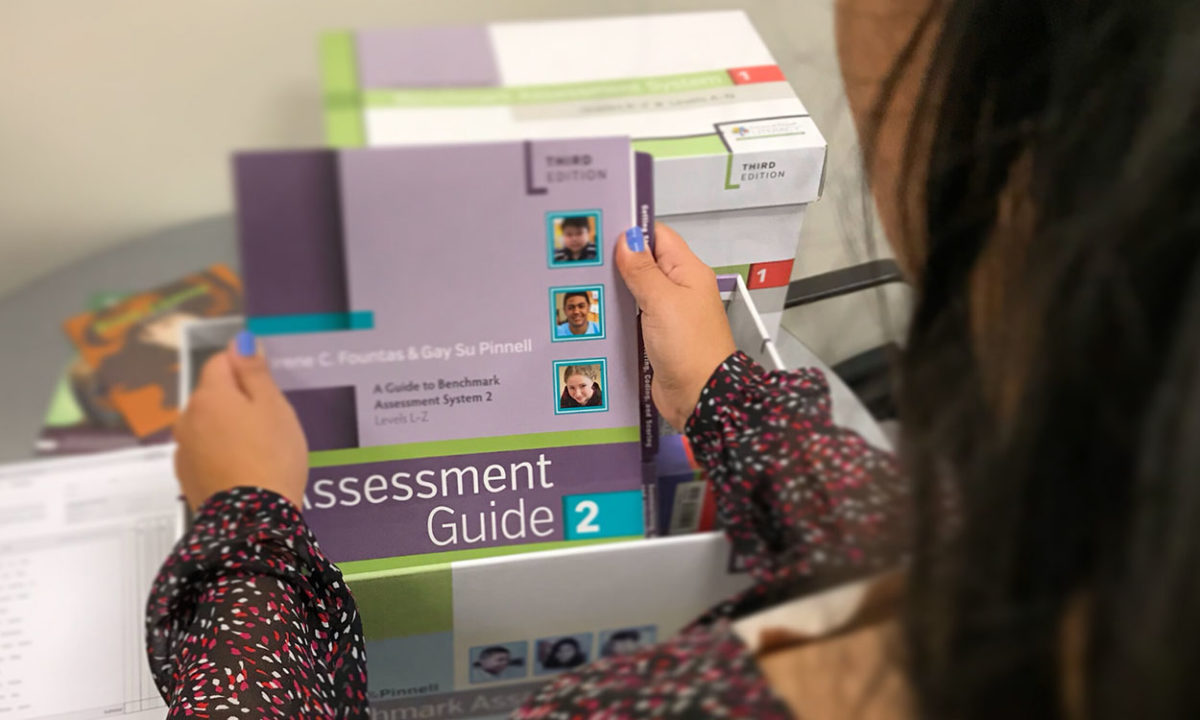As you use the Fountas and Pinnell Benchmark Assessment System, do you and your colleagues have common understandings so you will have accurate information on your students? Think about how you are providing a standardized comprehension conversation and scoring it in a standardized way. The following suggestions may be helpful:
Before the Assessment:
- Organize your materials for efficient use during the assessment.
- Be sure you have read and thought about the information in the book. When you know the text well, it will be easier to facilitate the conversation.
- Read the key understandings and prompts prior to the assessment so you are familiar with them.
- Make a small stick-on note of prompts that encourage more student talk (e.g. Say more about that. What else? Can you say more? Say more about what you mean.)
- Explain to children beforehand that you are going to meet with each of them to listen to them read so you will be able to help them as readers. Explain that you will ask them to read a short book and then you will ask them to share their thinking about what they read.
During the Assessment
- Use an encouraging tone when inviting the student to talk more.
- Do not use judgmental language (e.g. Good job/Excellent)
- Control your verbal and body language so your stance is neutral (No ahems!)
- Avoid repeating what the student says.
- Give wait time instead of jumping in to ask the question again.
- Be concise in the language of your prompts. Use the fewest words possible to keep your talk to a minimum.
- Don’t ask leading questions.
- When the student has indicated some knowledge of an answer but uses only one or two words in a superficial way, respond with, “Say more about that.” Or “Talk more about that.”
- If a student is simply reading the exact text to respond, it shows the student knows where to find evidence; however, the student needs to be able to articulate understandings independently. You might say, “Can you put that in your own words?”
- Try not to repeat a question or prompt unless it is necessary. Repeating a question several times can make a child confused or become “a lead” to an answer.
- Paraphrase a prompt only once. Doing so multiple times may lead the student to an answer.
- Avoid asking a question in a way that “gives” the answer. A leading question might be, “And how do these adaptations help this animal?”
- Be careful not to change the intentions of a prompt or a question. For example, “What is the writer’s message?” is different from “Can you say that in your own words?”
- Do not direct the student to a particular part of the book unless the prompt requires it.
- Allow the student to look back in the book if they initiate it. If the student starts to read from the book, you should say, “Can you say that in your own words?”
As you become very well versed with the books and the prompts, your comprehension conversation at the lower levels will only take about 2-3 minutes and the upper levels about 4-5 minutes.
Remember, an assessment conference is the time for you to gather good information, so resist the urge to teach! Discuss these points with your colleagues so your team can assure that each student is engaged in a standardized comprehension conversation that gives good data to inform teaching and document change over time in reading competencies.





